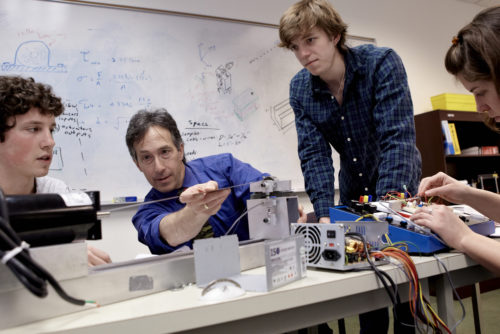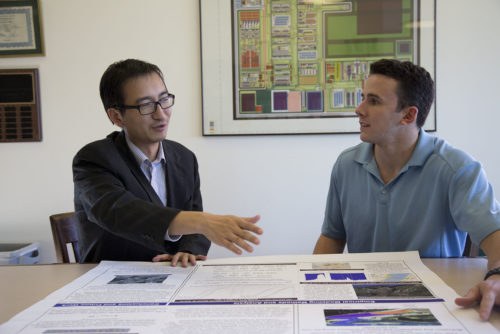Back to Engineering
The Major
Trinity offers both a B.S. and a B.A. degree in engineering. The bachelor of science degree is accredited by the Engineering Accreditation Commission of ABET, http://www.abet.org, while the bachelor of arts degree requires integration of engineering studies with significant study in such cognate areas as economics, international studies, environmental science, neuroscience, or public policy and law.
For an overview and the key differences between the B.S. and B.A., please visit the highlights below. We have also outlined the requirements, as well as detailed information about the different areas of concentration—electrical, mechanical, computer, or biomedical engineering—on the pages linked from the “In this section” dropdown menu.


